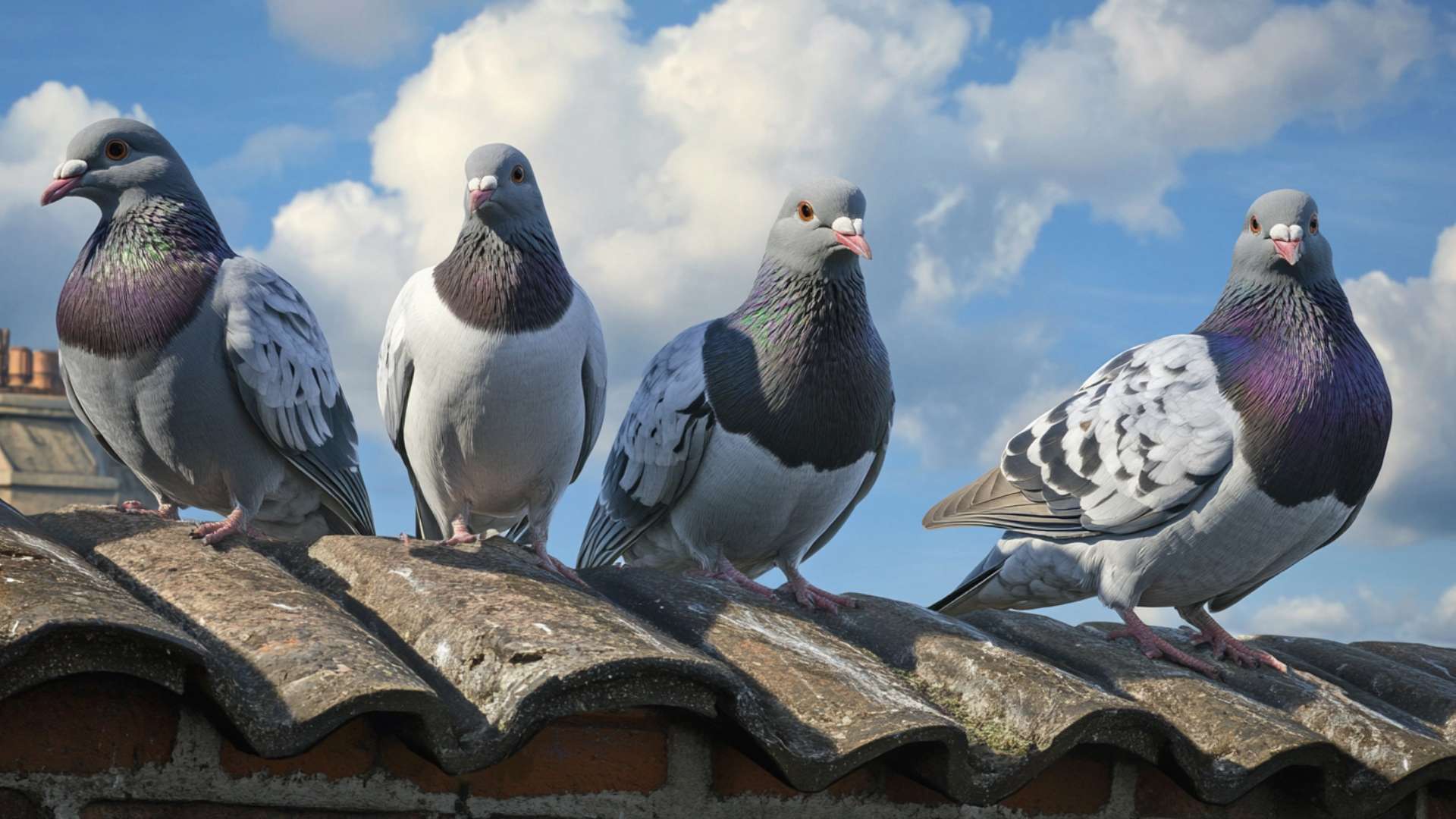Nestled in city parks, bustling squares, and crowded streets, pigeons have become an inseparable part of our urban landscape. These resilient birds possess an uncanny ability to adapt to the fast-paced city life while still maintaining their avian charm.
With their endearing coos and graceful flight, pigeons have captured the hearts of many city-dwellers who enjoy feeding them in local parks or squares. However, amidst this heartwarming scene lies a longstanding debate surrounding their dietary preferences – can pigeons eat rice?
Pigeons, scientifically known as Columba livia domestica, are highly adaptable birds that have thrived in urban environments across the globe. Their natural inclination to explore and scavenge has earned them the title of “urban dwellers.” These feathered adventurers display a remarkable ability to find sustenance in various environments, making them well-suited for city living.
From foraging through trash bins to pecking at crumbs left by humans, pigeons are opportunistic feeders that make the most of their surroundings. Now let’s address the age-old debate: Can pigeons eat rice?
Many bird enthusiasts have heard conflicting opinions on this matter. Some believe that feeding rice can be harmful to these feathered friends due to an urban myth commonly known as the “exploding pigeons and rice myth.” According to this myth, when pigeons consume uncooked rice, it allegedly expands within their digestive system causing distress or even exploding!
However, it’s essential to separate fact from fiction and delve into what science tells us about the issue at hand. So let’s dive into whether or not we should be throwing rice at weddings but not feeding it to our pigeon pals!
Pigeon Diet 101: What do pigeons eat?
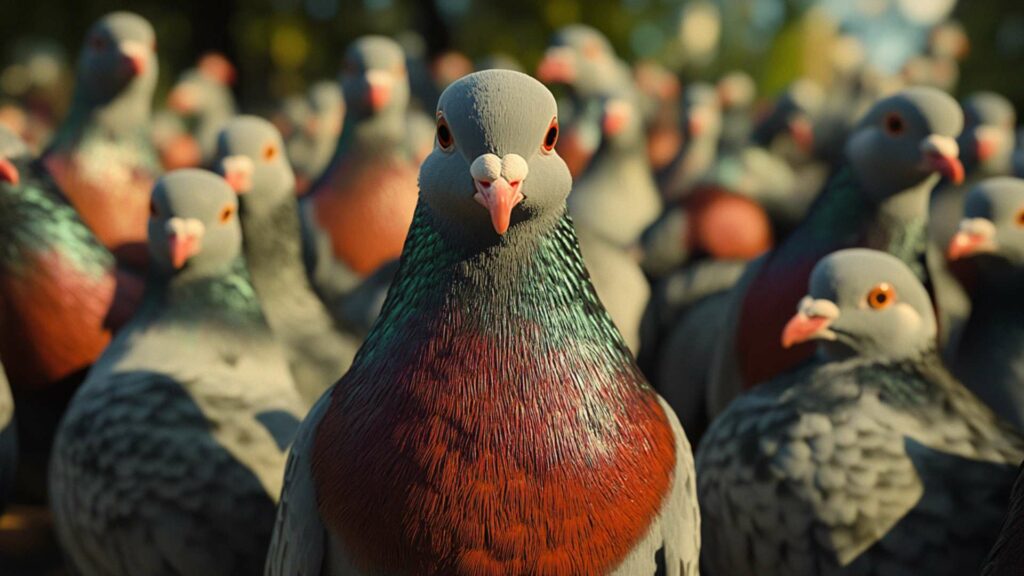
Omnivorous appetites: Pigeons are not picky eaters
When it comes to food, pigeons are known for their adaptable and versatile palates. These urban dwellers have omnivorous tendencies that allow them to thrive in a variety of environments.
Unlike some picky eaters in the animal kingdom, pigeons can be quite adventurous when it comes to their culinary choices. They possess a remarkable ability to adapt their diet according to what is available in their surroundings, making them highly successful scavengers.
Natural diet: Seeds, grains, fruits, and insects
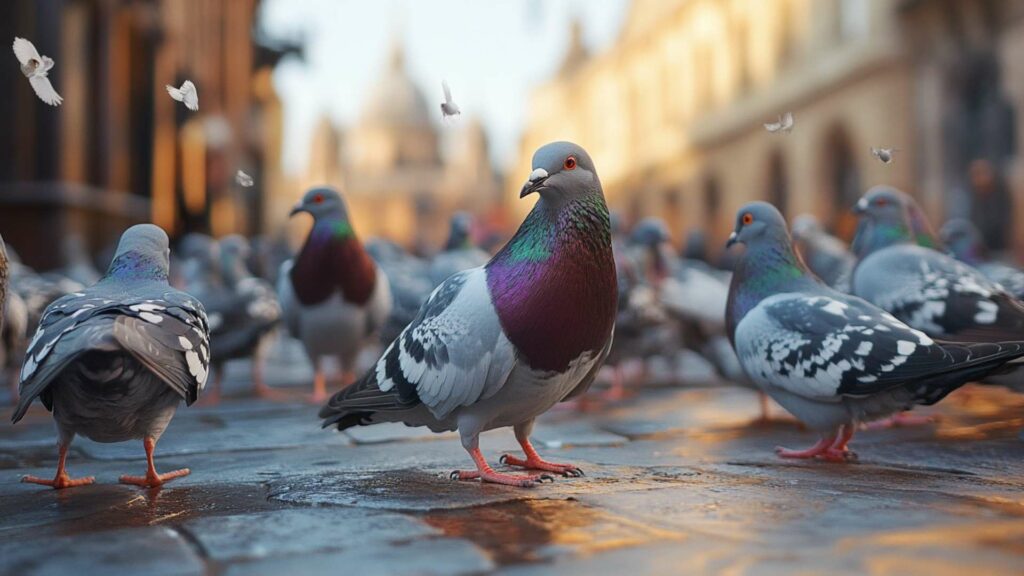
Although they have evolved as adaptable eaters, pigeons still have certain preferences when it comes to their natural diet. In the wild, their main food sources include seeds and grains found in grasses and plants. Sunflower seeds are particularly popular among these birds due to their rich nutritional content and high energy value.
Additionally, ripe fruits and berries serve as delectable treats for pigeons during certain seasons. While seeds and fruits form the foundation of a pigeon’s diet, these birds also incorporate insects into their meals.
The protein-rich insects provide essential nutrients necessary for growth and reproduction. From earthworms wriggling in the soil to beetles buzzing around parks or gardens, pigeons are not averse to including some creepy crawlies in their menu.
Pigeon diets may vary depending on factors such as location and availability of resources; however, one thing is clear: these birds are resourceful when it comes to finding sustenance amidst urban landscapes or natural habitats.
Rice on the Menu: Can pigeons digest rice?
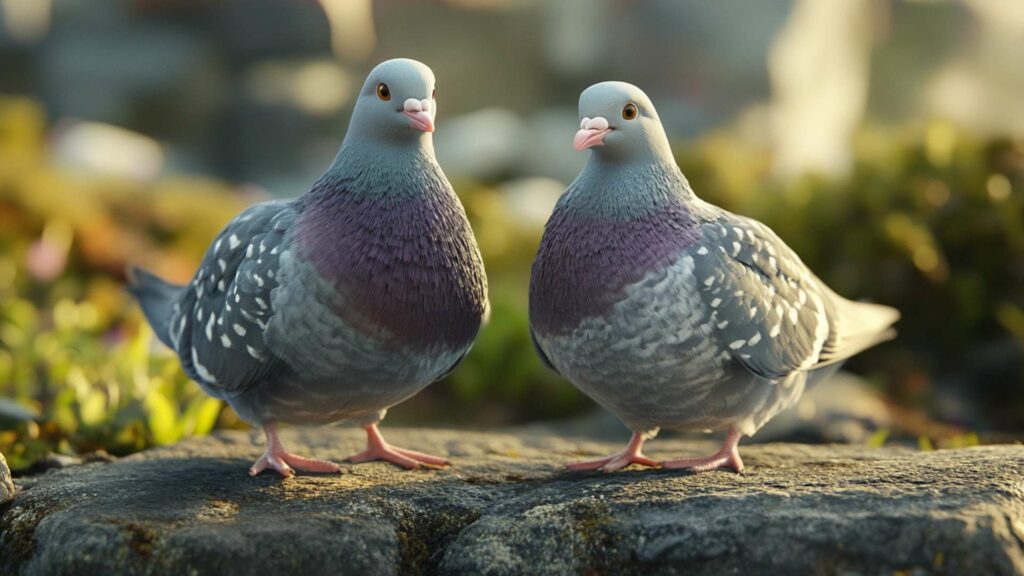
Rice as a staple food for humans
Rice has been a dietary staple for humans for centuries, with its versatile and comforting properties making it a popular choice across cultures. However, the question arises: can this beloved grain be safely consumed by our feathered friends?
Many urban myths suggest that feeding pigeons rice can lead to their untimely demise. Let’s dive into the truth of the matter.
Mythbuster Alert!
Pigeons can indeed eat rice! Contrary to popular belief, pigeons can safely consume rice without any harm to their health. The notion that feeding pigeons rice will cause them to explode or suffer from digestive issues is nothing more than an urban myth. Pigeons have a highly adaptable diet and are capable of digesting various types of grains. This includes rice, which forms part of many bird seed mixes available in stores specifically formulated for pigeon nutrition.
Digestive system insights: Pigeon’s efficient gizzard helps break down grains
To understand why pigeons are perfectly equipped to digest grains like rice, we must take a closer look at their unique digestive system. Pigeons possess a muscular organ called the gizzard, located in their stomachs, which aids in breaking down hard substances such as seeds and grains through contractions and grinding action.
This allows them to extract nutrients from otherwise challenging food items. The semi-crystalline structure of uncooked rice poses no threat to a pigeon’s gizzard or overall health.
In fact, it provides an additional source of carbohydrates essential for energy production in these active avian creatures. Thus, it is safe to say that pigeons have evolved over time not only to tolerate but also benefit from including rice in their diet.
Cooked vs uncooked rice debate: Safety concerns debunked
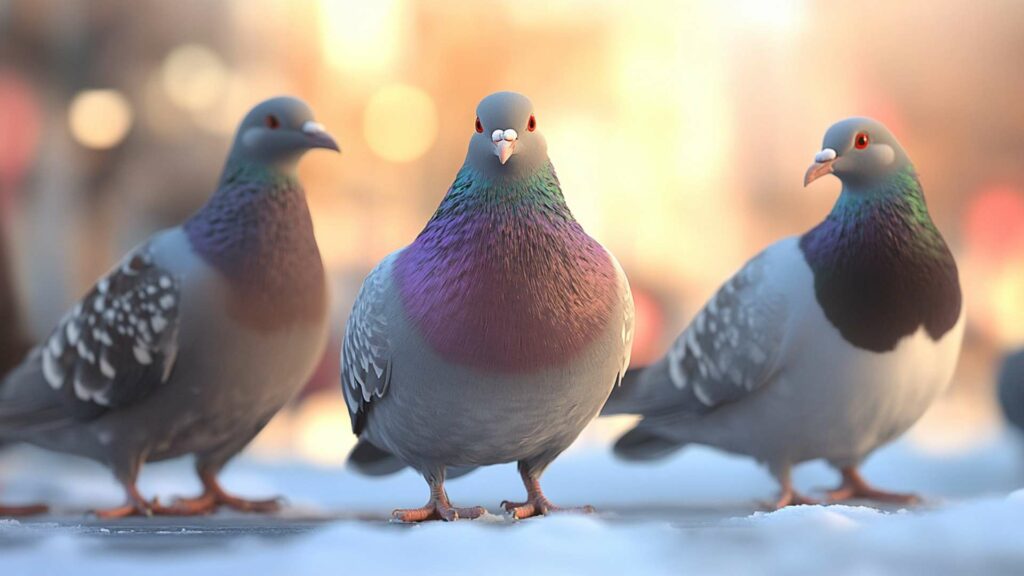
Concerns have been raised regarding the safety of feeding pigeons cooked or uncooked rice. However, these fears are unfounded. Whether cooked or uncooked, rice poses no harm to pigeons when consumed in moderation as part of a well-balanced diet.
While it is true that cooked rice may expand slightly during the cooking process due to absorption of water, this expansion is minimal and poses no risk to a bird’s stomach. The exploding pigeons myth associated with cooked rice is simply not based on scientific evidence.
So, rest assured that if you choose to include rice in your pigeon feeding routine, both brown rice and white varieties are suitable options. Remember, while it’s fine to offer rice as part of their diet, it should not be the only food provided.
Pigeons require a diverse range of nutrients for optimal health and well-being. Supplementing their diet with other foods such as fruits, vegetables, and commercially available bird seeds ensures they receive a balanced nutritional intake.
The notion that feeding pigeons rice can harm them is nothing more than an unfounded urban myth. Pigeons possess efficient digestive systems capable of breaking down grains like rice without any issues.
Both cooked and uncooked varieties are safe for consumption when given in moderation alongside other nutrient-rich foods. So go ahead and share some grains with these resilient urban dwellers – they’ll enjoy it!
Nutritional Value of Rice for Pigeons
Carbohydrate-rich goodness: Energy source for active pigeons
When it comes to providing energy, rice is like a power-packed fuel for our feathered friends. Pigeons are highly active creatures, constantly fluttering and exploring their urban habitats. To sustain this level of activity, they require a healthy diet, that fuels their daily adventures.
Rice, being rich in carbohydrates, offers an excellent source of readily available energy for pigeons. The complex carbohydrates found in rice grains provide a sustained release of energy throughout the day, helping these agile birds fly and navigate their way through bustling city streets.
Vitamins and minerals in rice that benefit pigeon health
Contrary to popular belief, eating rice often isn’t just empty calories for pigeons; it also contains essential vitamins and minerals that contribute to their overall well-being. One important nutrient found in rice is thiamine (vitamin B1), which plays a crucial role in maintaining a healthy nervous system in pigeons. Additionally, rice contains niacin (vitamin B3), which aids in proper digestion and supports the bird’s metabolism.
Furthermore, trace minerals such as iron, manganese, and selenium are present in rice grains. These minerals promote various bodily functions including growth, immune system support, and antioxidant activity.
By incorporating rice into their diets, pigeon owners can ensure that these vital nutrients are included in their bird’s diet. While there may be misconceptions surrounding the feeding of rice to pigeons due to the exploding pigeons myth or the tradition of throwing baby pigeons eat rice while at weddings, rest assured that feeding pigeons rice is completely safe and can even be beneficial for their health when done responsibly.
The carbohydrate-rich nature of rice provides ample energy for active birds like pigeons while vitamins such as thiamine and niacin contribute to their overall well-being. With a balanced diet that includes various food sources, pigeons can thrive and continue to grace our cityscapes with their charming presence.
Feeding Rice to Pigeons Responsibly
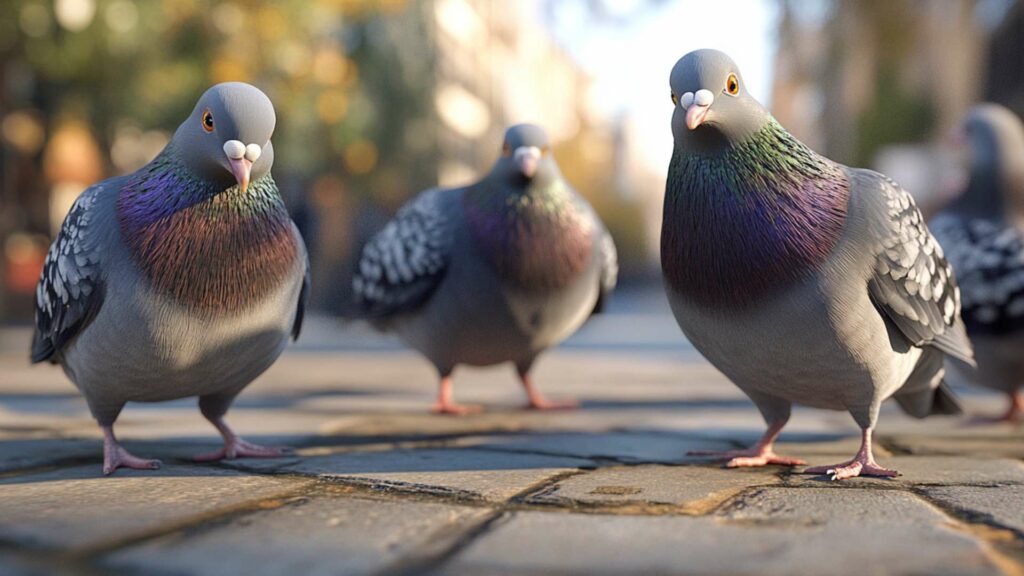
Moderation is key: A balanced diet is crucial for pigeon health
When it comes to feeding pigeons, moderation is key. While pigeons can eat rice, it’s important for baby pigeons not to rely solely on this staple food.
Just like humans, pigeons require a balanced diet to maintain optimal health. Feeding them a variety of foods ensures they receive all the necessary nutrients for their well-being.
Supplementing rice with other foods to meet nutritional needs
To make rice farmers provide a well-rounded diet for pigeons, it’s advisable to supplement their rice intake with other nutritious foods. Pigeons love seeds like millet, sunflower seeds, and corn. These are readily available in bird feeders or pet stores and can be mixed with rice for added variety.
Additionally, fresh fruits such as berries or chopped apples are also welcomed by these feathered urban dwellers. Other than grains and fruits, insects are an excellent source of protein for pigeons.
If you’re feeling adventurous (and perhaps a tad squeamish), you can offer live mealworms or small crickets as an occasional treat for your feathered friends. This way, you ensure that they receive a well-rounded diet that meets their nutritional needs.
The importance of variety in a pigeon’s diet
Just like humans get bored with eating the same thing every day, so do pigeons! Offering birds to eat rice, to them only rice may lead to monotony in their diet and potentially cause malnutrition over time.
It’s important to remember that providing variety in what you can feed pigeons to them increases the chances of meeting their nutritional requirements. A diverse diet not only offers more nutrients but also mimics what pigeons would naturally find in their environment.
In the wild, these birds have access to various types of seeds, grains, fruits, and insects. By replicating this variety in their captive diets, we ensure that their nutritional needs are met and that they can thrive happily.
Remember, feeding pigeons is not just about fulfilling their hunger, but also about promoting their overall well-being. So, go ahead and offer them a smorgasbord of foods to keep them healthy, happy, and eager to grace your urban surroundings with their presence!
Cautionary Notes and Considerations
Quality Control: Avoid Feeding Spoiled or Moldy Rice
When it comes to feeding pigeons rice, it’s important to exercise caution and prioritize their well-being. While rice can be a suitable addition to their diet, it is crucial to ensure that the rice you offer is safe and healthy for our feathered friends. One significant consideration is the quality of the raw rice that is being provided.
Pigeons, like any living beings, can suffer from foodborne illnesses if they consume spoiled or moldy rice. To maintain the health of pigeons eating rice, it is essential to check for signs of spoilage or mold before offering them any rice.
Discard any rice that smells off or cook rice that appears discolored or slimy. Remember, pigeons rely on us for their nourishment, so we must take responsibility and provide them with food that meets appropriate quality standards.
Environmental Impact: Mindful Feeding Practices to Prevent Overpopulation
Feeding birds can be a delightful experience that brings joy and connection with nature. However, we must be mindful of our actions as feeding practices can have unintended consequences and kill birds, such as overpopulation. Pigeons are highly adaptable creatures and can quickly multiply in urban environments where ample food is available.
To prevent overpopulation and maintain a balance in the ecosystem, it’s crucial not to rely solely on feeding pigeons rice or any other type of food regularly. Instead, consider diversifying their diet by providing young birds with a mix of seeds like sunflower seeds along with other bird-friendly foods available at pet stores or specialized bird feeders.
By promoting variety in their diet and not solely relying on human-provided sustenance like rice, we help avoid an overabundance of pigeons in urban areas while fostering their overall well-being. By being mindful of quality control when selecting suitable rice for pigeons and promoting responsible feeding practices, we can ensure the health and welfare of our feathered friends.
Remember, offering a balanced diet that includes a variety of foods alongside rice is essential for their overall nutrition. With these considerations in mind, we can create a harmonious coexistence with urban pigeons while preserving the well-being of both birds and humans alike.
Urban Legends and Fun Facts about Pigeon Diets
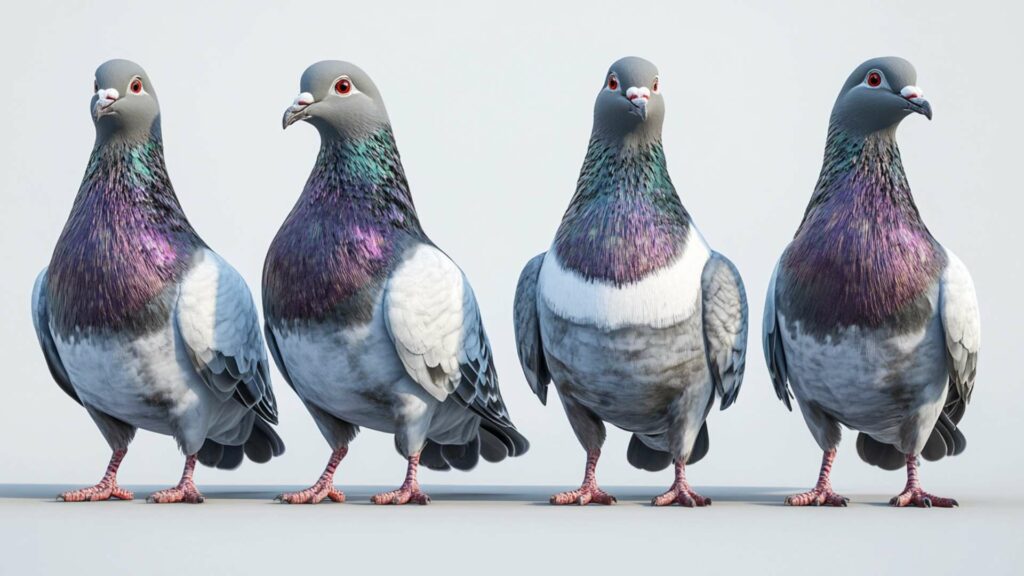
Famous Pigeon-Friendly Cities Around the World
When it comes to cities that have embraced their pigeon populations, some have truly gone above and beyond. Let’s take a closer look at a few famous pigeon-friendly cities around the world.
1. Venice, Italy: Known for its picturesque canals and stunning architecture, Venice is also home to countless pigeons. In the iconic St. Mark’s Square, visitors can enjoy feeding these feathered friends with bird seeds purchased from local vendors. The sight of pigeons flocking in front of historical landmarks creates a unique bond between humans and birds.
2. London, England: Trafalgar Square is not only famous for its monumental statue of Admiral Nelson but also for its resident population of pigeons. For many years, feeding these birds was a cherished tradition until it was officially banned in 2003 due to concerns over hygiene and public safety. Nevertheless, the memory of flocks of pigeons gracefully soaring through the square lives on.
3. Kyoto, Japan: In Kyoto’s peaceful parks and temples, it is common to encounter friendly pigeons coexisting harmoniously with visitors. The city has designated certain areas where people can feed rice grains or specially prepared bird food to these feathered residents, adding an extra touch of tranquility to this beautiful cultural hub.
Surprising Food Preferences of Pigeons Revealed
Pigeons may be known for their ability to adapt and eat almost anything, but there are some surprising food preferences that you may not be aware of:
1. Pizza Crusts: It seems that even pigeons appreciate a good slice of pizza! Spotting them nibbling on pizza crusts left behind by picnickers or discarded near outdoor cafes is not uncommon in urban areas where they roam freely.
2. Popcorn: Yes, pigeons have a penchant for popcorn! If you’ve ever dropped a piece while enjoying a movie in the park, you might have noticed these birds swiftly swooping down to claim their tasty prize.
3. Fresh Greenery: While pigeons are often associated with urban environments, they do appreciate some fresh greens from time to time. They have been observed nibbling on tender leaves and grass when available.
So next time you spot a pigeon exploring the cityscape, don’t be surprised if it takes a quick detour for a leafy snack. Pigeons’ dietary preferences extend beyond the realm of traditional bird feeders or bird seeds.
They have adapted remarkably well to urban environments and can find sustenance even in unexpected places like pizza crusts and popcorn remnants. Although rice is also on their menu, it’s essential to remember that they need a balanced diet that includes other foods to meet their nutritional needs and avoid overreliance on any one particular type of food.
Conclusion
After delving into the age-old debate of whether pigeons can eat rice, we can confidently declare that pigeons do indeed enjoy and digest rice without any adverse effects. Our exploration of pigeon diets revealed their omnivorous nature and adaptable appetites.
Pigeons are not picky eaters; they happily consume a variety of seeds, grains, fruits, and even insects in their natural diet. While rice is not a staple food for pigeons in the wild, it poses no harm when incorporated into their diet.
Contrary to popular belief, feeding cooked or uncooked rice to pigeons is safe. The myth surrounding the danger of when birds eat uncooked rice or eating uncooked rice at weddings or events is simply that – a myth.
Pigeons have efficient digestive systems with muscular gizzards that aid in breaking down grains like rice. As responsible bird enthusiasts, we should focus on providing a balanced diet for our feathered friends rather than worrying about the potential harm of feeding them too much rice.
It’s important to note that while pigeons can eat rice, moderation is key. Rice should be offered as part of a varied diet to ensure they receive all the necessary nutrients for optimal health.
Supplementing their meals with bird seeds, fruits, and vegetables will provide additional vitamins and minerals essential for their well-being. As we bid farewell to the notion that pigeons explode from eating uncooked rice or suffer ill effects from enjoying this grainy treat as part of their balanced diet, let’s appreciate these urban dwellers’ adaptability and resilience.
By understanding their dietary needs and practicing responsible feeding habits, we can coexist harmoniously with these majestic creatures while adding joy to our urban landscapes. So go ahead – toss some bird food mixed with a bit of white rice in your local park and witness the delight on many baby birds” faces as they enjoy this wholesome snack alongside other nourishing treats!
Discourage Pigeons with D-Termination: Las Vegas’ Leading Pest Control Solution!

If you’re grappling with pigeon problems, D-Termination is the solution you need. Our team of experts excels in pigeon deterrence, revitalizing cleanliness and maintaining the integrity of your environment. Bid farewell to pigeons by choosing D-Termination for highly effective pest control today!
Contact us at 702-919-6310 or visit dtermination.com to schedule your pigeon control service and reclaim your space from these unwelcome pests.
Frequently Asked Questions:
Feeding pigeons rice is generally okay in moderation.
Yes, pigeons can eat white rice.
Cooked white rice is safe for pigeons to eat.
Pigeons should avoid foods high in salt, sugar, and processed items.

